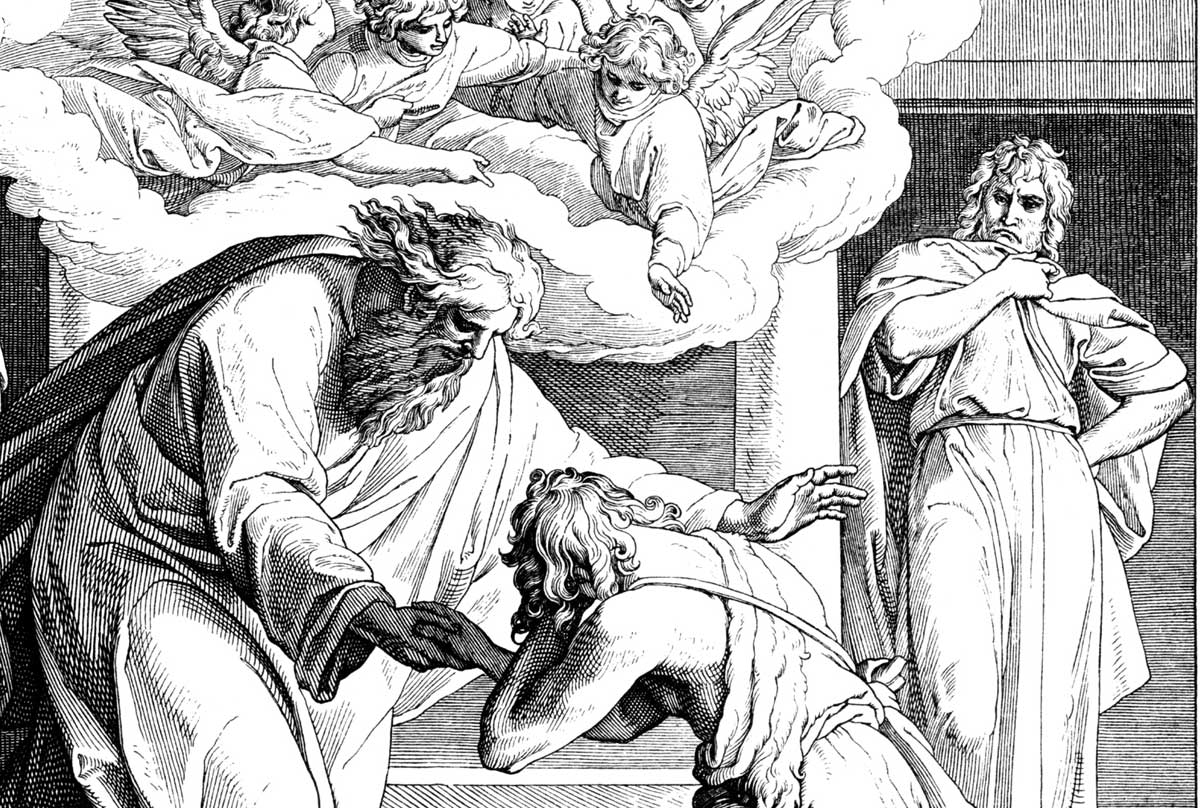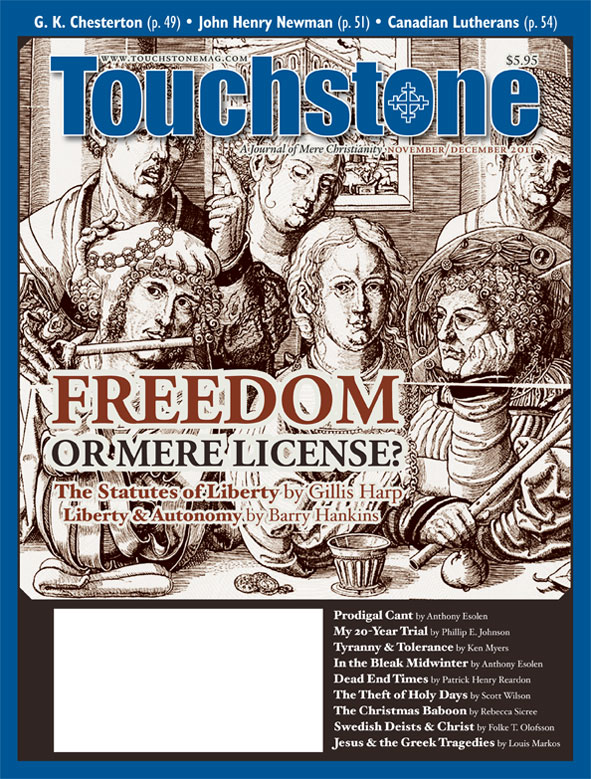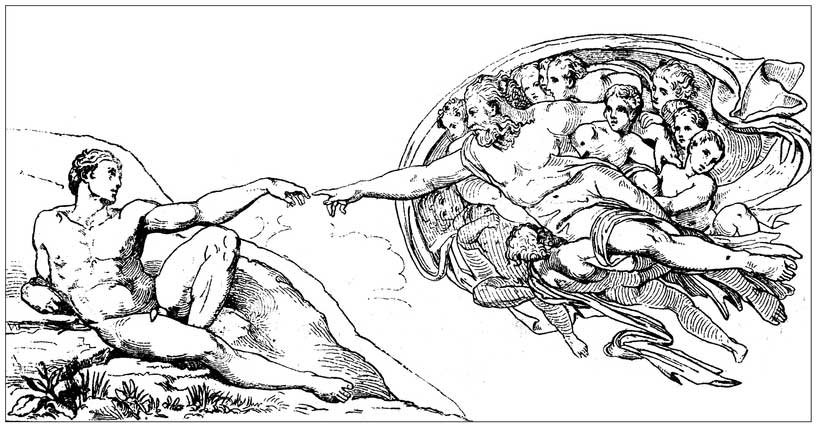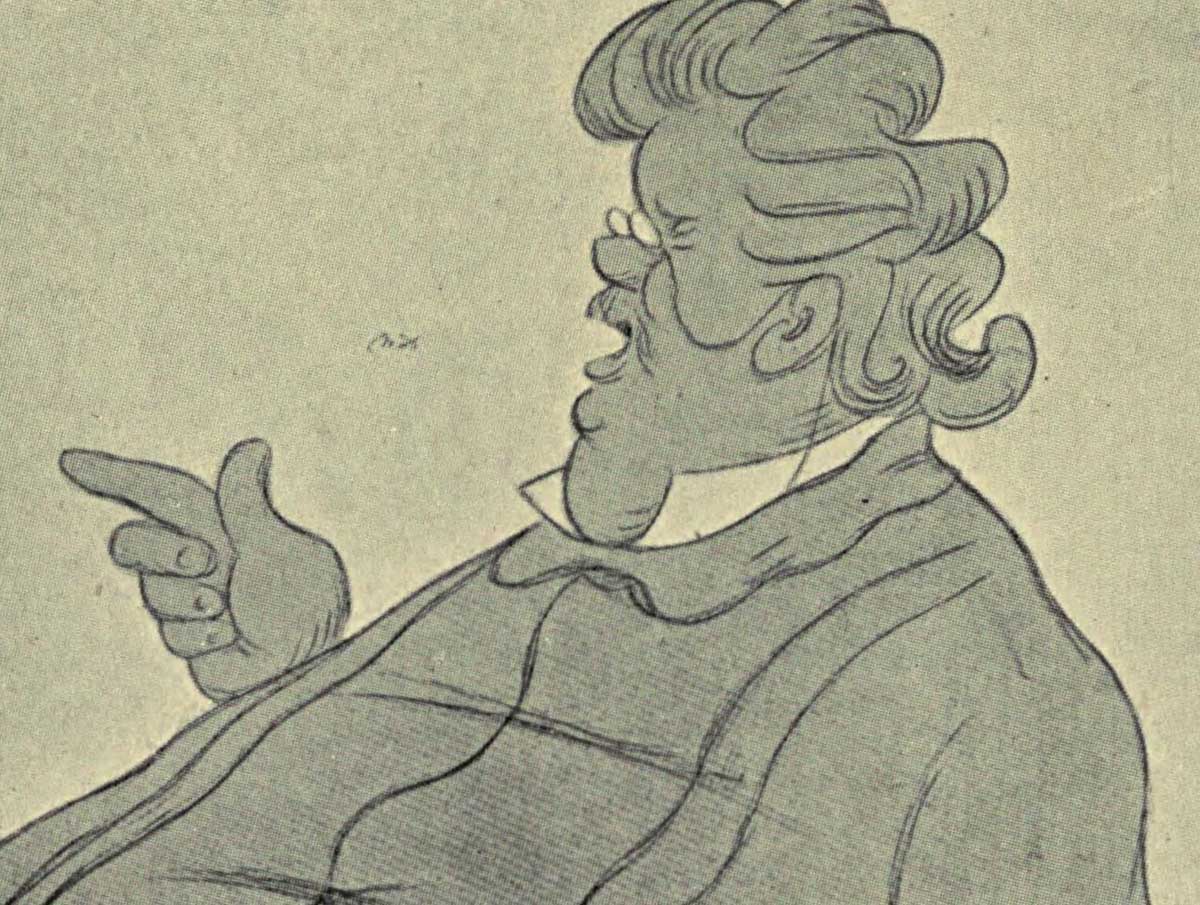Editorial
Prodigal Cant
The Lord’s Truth & the Casualty of Politics
A man had two sons, wrote Charles Péguy in his Portal to the Mystery of Hope. It is all he needed to write to call up that poignant story that we all know, because we have all lived it. We have all played the parts of those two sons, the silent dutiful son who is saddened by another’s spiritual blessing, and the squanderer whose soul had to be led by the belly.
The parables of Jesus speak home truths to us. The Word made Flesh gives flesh to his words. No praise of human glory, no lament for human shame, no starry predictions of human accomplishment, no warnings of human degeneracy, can stir our souls as can the words of the Master, whose parables give wisdom to the simple and baffle the most wise. A man had two sons.
If we turn to Jesus, he speaks to us, not as an ironical Socrates, or an aloof Buddha, but as the passionate revealer of truth—of truth as massive as mountains and as terrible as the approach of an uncompromising love. And this is a problem for us, because we live in a world of lies. I mean more here than that people do not generally tell the whole truth. I mean that a secular world, running along its own well-oiled rails, travels from one lie to the next.
We find telling suggestions of this mendacity in the foundation myths of ancient Rome. Romulus and Remus, says Livy, were suckled by a she-wolf after they had been abandoned at the side of the Tiber, though there was a rumor, he adds slyly, that a country harlot nicknamed after that creature had taken the boys in. The second legendary king, Numa Pompilius, seeing that he had inherited a warlike people, tried to instruct them in the ways of peace. He retreated every so often to a cave, where he pretended that he was being advised by a goddess, the nymph Egeria. The whole history of that great republic and empire is, as Augustine saw quite well, the story of sinful man writ on a grand political stage. It is the story of the “good” emperor Augustus, who conspired with Antony in the assassination of their enemies, and who then dispatched Antony when he was through with him; all before his attempt to reform Roman morals.
No Truth Allowed
The secular world, now a world of mass politics, is quite simply a world that subsists on lies. It is a world deaf to that parable of Jesus, and so also a world without forgiveness and without hope. The connections between those elements—the lie, the hardheartedness, and the despair—are easy enough to draw. It is a world wherein the “successful” person must project an image.
This necessity is not new. Augustus, after all, had himself sculpted as Pontifex Maximus upon his Ara Pacis, the altar of peace. No admission of weakness, uncertainty, ignorance, incapacity, or sheer sinfulness is allowed. None such is allowed because none such would be forgiven. Therefore, people who play the world’s game must so thoroughly persuade themselves of the lie that they will not be caught off guard in a moment of weakness, or rather, a moment of truth.
So the partisan of one side must cast himself as the protector of the nation and of everything that is good, while his opponent is a mere poltroon or scoundrel. No one has the faintest idea how a vast and sluggish economy may be “fixed” by a few wise laws, but everyone must pretend to know it, and must pretend to see that those who disagree with them are “pandering to their rich friends” or “buying the votes of the poor.”
Committed to Cant
Far be it from me to deny that politicians often pander to their friends or buy votes, or that there are poltroons and scoundrels aplenty in the halls of Congress. Far be it from me, too, to deny that there are wise and foolish measures to apply to an ailing economy. I simply note the fact that, in what Scripture calls “the world,” it seems quite impossible, it seems downright perilous, to speak in anything other than the cant of the day.
When I hear someone on the radio speaking about “our brave men and women” in the army, I sense that I’m in the realm of advertising, for political effect. I’m not denying the bravery of the brave, but simply noting that the actual bravery of flesh-and-blood soldiers seems not to be in the speaker’s mind. It is an automatic phrase, like “the greatest nation on earth,” or “the advance of women,” or “western imperialism,” and suchlike.
And people commit themselves to the cant, often in direct proportion to their not knowing what they are talking about, with a cold and heartless passion. Demons abound. Sometimes the cant is so absurd as to provoke laughter, as when secularists of various stripes refrain for a moment from pummeling one another about the head with their learned tomes in order to bemoan the divisiveness of a conveniently vague “religion.”
In Need of Reminding
And yet it is only faith in a forgiving—and therefore also a just and truth-demanding—God that can unite us. All Christians know this, though we need to be reminded of it all the time. Our Lord is the Teacher who commands us to examine our consciences, to bring out into the light the sins we do not wish to acknowledge, to confess them, and to beg for mercy. We are such wretches that we can turn truth into lies simply by falling victim to pride: we can even invert the parable of Jesus, and say, “I thank you, Lord, that you have made me a publican and a sinner, and not like that hypocritical Pharisee over there!” Thus, to turn to the Word, to the teachings of Jesus, is like retreating from a world of glare and manipulation and self-deception to a quiet room, where the truth that sets us free can at last be told.
A man had two sons.
—Anthony Esolen, for the editors
Anthony Esolen is Distinguished Professor of Humanities at Thales College and the author of over 30 books, including Real Music: A Guide to the Timeless Hymns of the Church (Tan, with a CD), Out of the Ashes: Rebuilding American Culture (Regnery), and The Hundredfold: Songs for the Lord (Ignatius). He has also translated Dante’s Divine Comedy (Random House) and, with his wife Debra, publishes the web magazine Word and Song (anthonyesolen.substack.com). He is a senior editor of Touchstone.
subscription options
Order
Print/Online Subscription

Get six issues (one year) of Touchstone PLUS full online access including pdf downloads for only $39.95. That's only $3.34 per month!
Order
Online Only
Subscription

Get a one-year full-access subscription to the Touchstone online archives for only $19.95. That's only $1.66 per month!
bulk subscriptions
Order Touchstone subscriptions in bulk and save $10 per sub! Each subscription includes 6 issues of Touchstone plus full online access to touchstonemag.com—including archives, videos, and pdf downloads of recent issues for only $29.95 each! Great for churches or study groups.
Transactions will be processed on a secure server.
more on Christianity from the online archives
more from the online archives
calling all readers
Please Donate
"There are magazines worth reading but few worth saving . . . Touchstone is just such a magazine."
—Alice von Hildebrand
"Here we do not concede one square millimeter of territory to falsehood, folly, contemporary sentimentality, or fashion. We speak the truth, and let God be our judge. . . . Touchstone is the one committedly Christian conservative journal."
—Anthony Esolen, Touchstone senior editor













